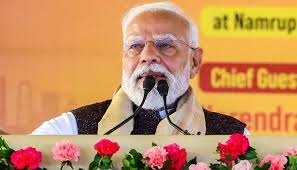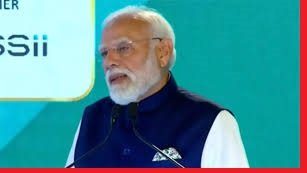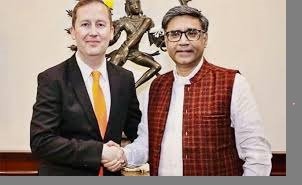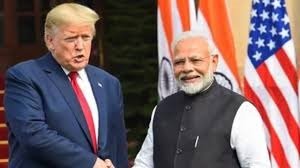Washington, Sept 15 (Economy India): US President Donald Trump has announced a 100% tariff on all branded or patented pharmaceutical imports, effective October 1, 2025. The move, part of his aggressive “America First” and “Make in America” strategy, aims to push global pharma companies to set up manufacturing plants within the United States.
The new tariff will not apply to companies that already operate or are in the process of setting up drug manufacturing facilities in the US.
India Among the Most Affected Exporters
India, one of the world’s largest drug exporters, ships nearly 30% of its total pharmaceutical exports to the US. In 2024, India exported medicines worth $8.73 billion (approx. ₹77,000 crore) to America. While much of this consists of generic drugs, Indian firms also export branded formulations, which could be hit by the new tariffs.
Trump has already imposed a 50% tariff on Indian exports such as textiles, gems & jewelry, seafood, and furniture from August 27. Pharmaceuticals had been excluded until now, but this latest decision places branded medicines squarely in the line of fire.

Trump’s Rationale: Boost Domestic Manufacturing
In his announcement, Trump said:
“From October 1, we will impose a 100% tariff on branded or patented drugs, except for those companies that are building or already have plants in the US. America cannot afford to rely on other countries for essential medicines. This is about national security and strengthening our supply chain.”
The Trump administration has argued that heavy dependence on imports poses risks to the US healthcare system. The COVID-19 pandemic had highlighted vulnerabilities in the global supply chain when drug shortages threatened patient care.
Generics Exempt—for Now
Interestingly, generic medicines have been spared from the tariff, at least for now. Analysts believe this is because US healthcare is heavily dependent on low-cost generics, which are 80–90% cheaper than branded drugs.
According to a report, 4 out of every 10 prescriptions filled in the US are supplied by Indian pharma companies. Between 2013 and 2022, the US healthcare system saved $1.3 trillion by using generics.
However, experts warn that generics could be Trump’s next target.
“While India may not feel a big impact immediately, the possibility of tariffs on generics in the future cannot be ruled out. This would have a direct effect on both pharma stocks and the healthcare sector in the US,” said V.K. Vijayakumar, Chief Investment Strategist at Geojit Investments.
Branded vs. Generic: Key Difference
- Branded (Patented) Drugs: Developed through years of costly research, protected by patents for around 20 years, and priced significantly higher to recover R&D investments.
- Generic Drugs: Manufactured after patents expire, using the same formula. They cost 80–90% less since no R&D investment is required.

Impact on Indian Pharma Giants
Indian companies like Sun Pharma, Dr. Reddy’s, and Lupin export both generics and some branded drugs to the US. Analysts say while generics remain unaffected, these firms’ branded product lines could face additional costs, impacting competitiveness.
For consumers in the US, the move could lead to higher drug prices if multinational pharma firms fail to localize production quickly.
Wider Trade Actions: Furniture, Cabinets, and Trucks
Trump also expanded tariffs on other imports:
- 50% on kitchen cabinets, bathroom vanities, and related goods starting October 1.
- 30% on upholstered furniture such as sofas and cushioned chairs.
- 25% on heavy trucks manufactured outside the US, aimed at protecting American truck makers like Peterbilt, Kenworth, and Mack Trucks.
“These countries are flooding our markets with unfair exports,” Trump said. “We must protect American workers and industries.”
Outlook
- For India, the move underscores the increasing unpredictability of US trade policy.
- While generics remain untouched, the threat of future tariffs looms large.
- Pharma firms may need to consider setting up plants in the US to bypass tariffs.
- In the short term, stock market volatility in Indian pharma shares is expected.
Trump’s escalating tariff war has opened a new front—pharmaceuticals—where India plays a critical role. Whether generics remain exempt or not could decide the extent of the long-term impact on India’s $25 billion pharma export industry.
(Economy India)













